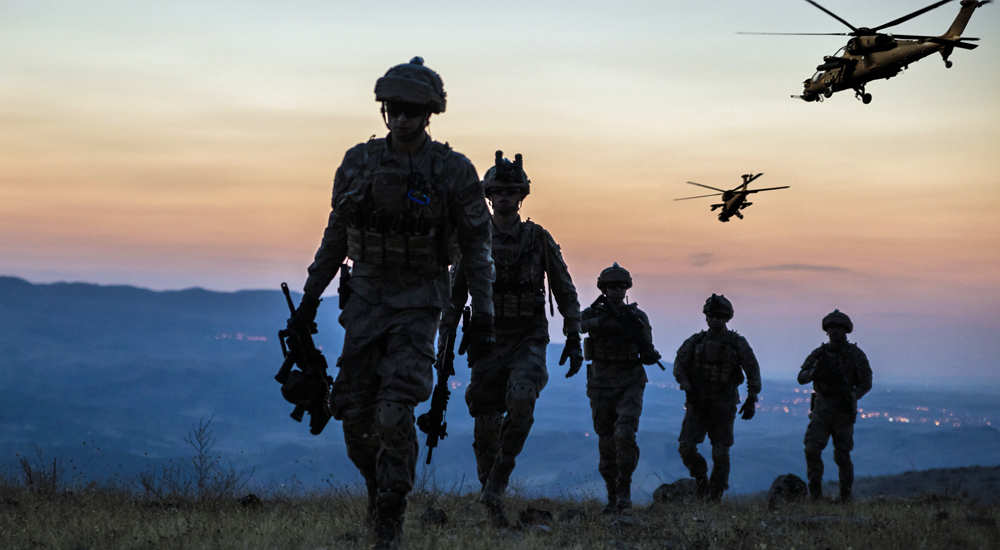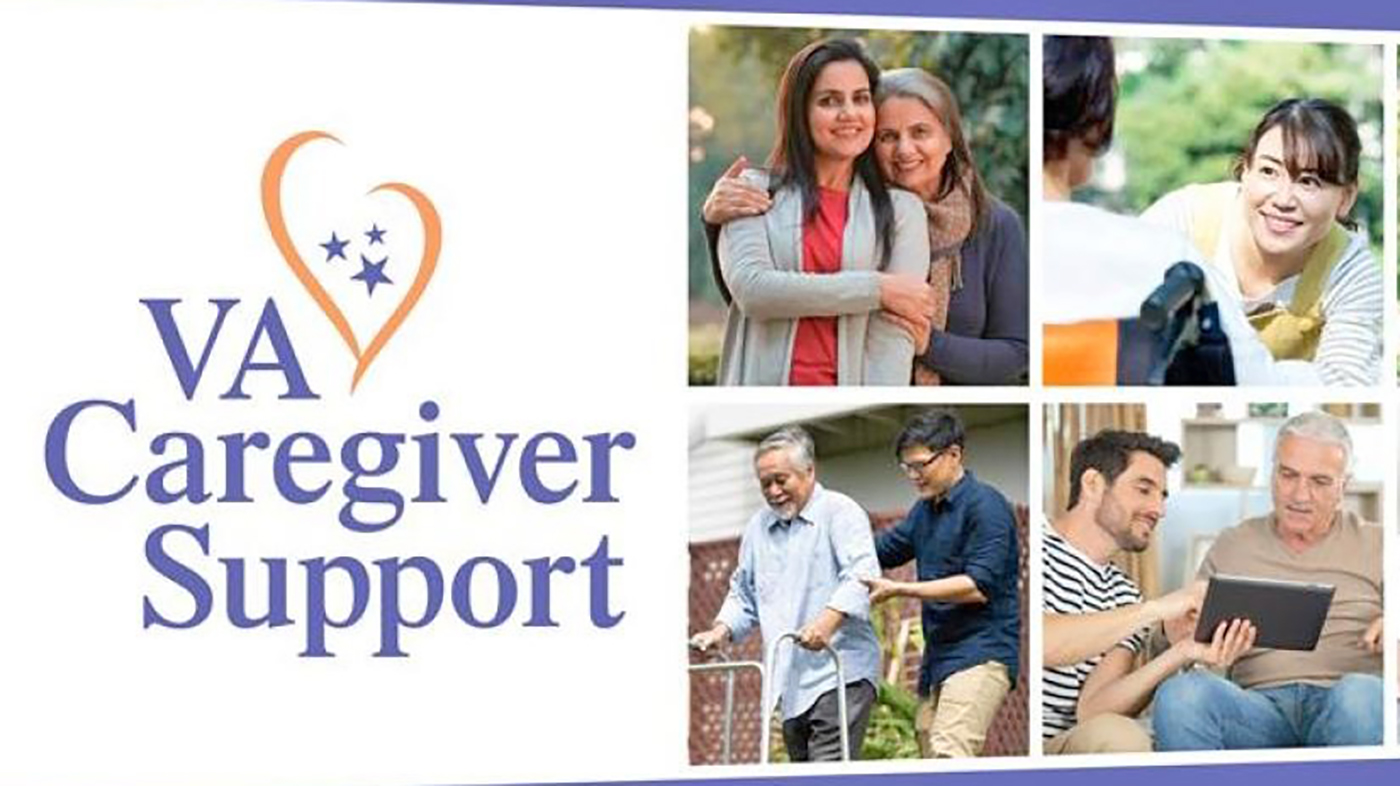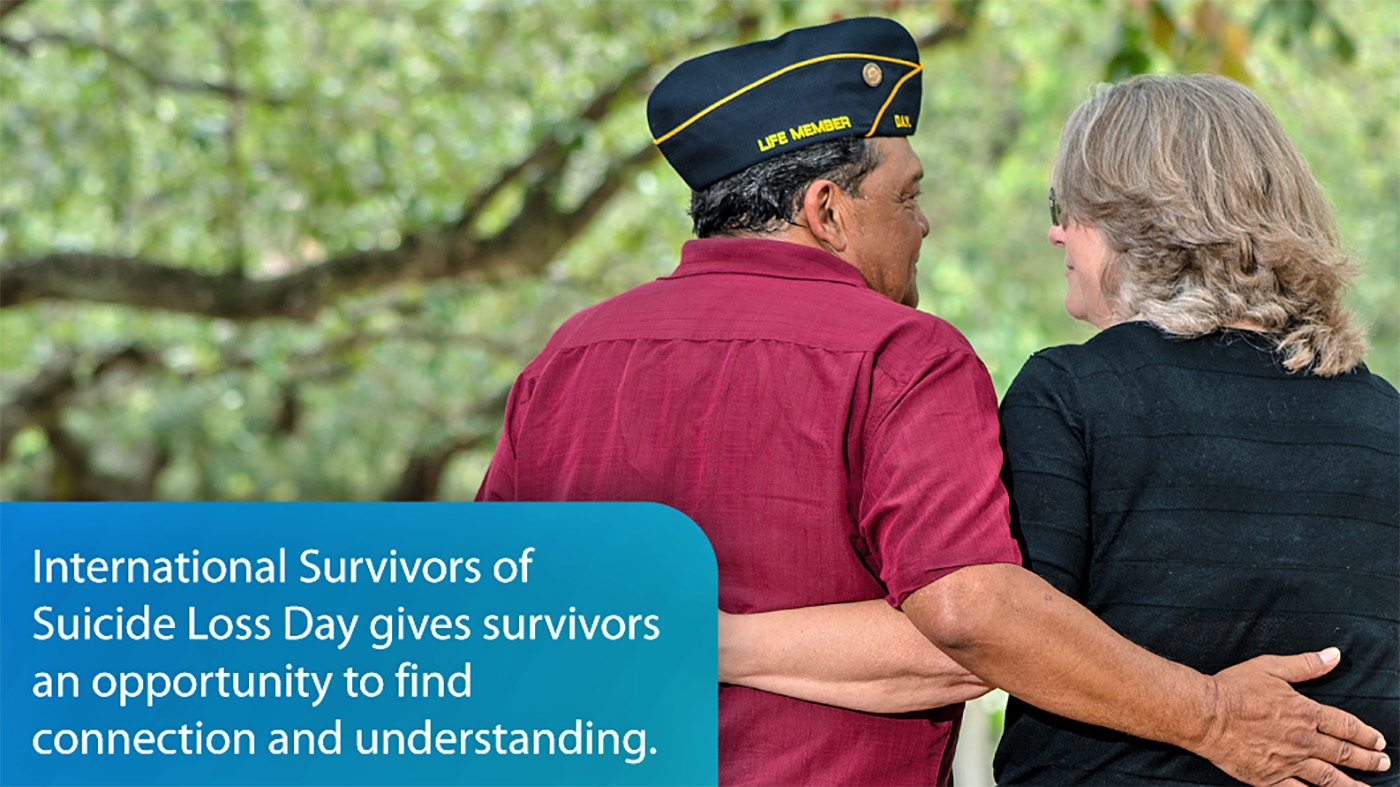VA’s Research Advisory Committee on Gulf War Veterans’ Illnesses (RACGWVI) will host two Veteran Engagement Sessions (VES) for 1990-91 Gulf War Veterans (GWV) who want to raise questions and/or share their experience about Gulf War Illness (GWI).
The engagement sessions will be followed by a parent meeting of the committee. These meetings help the committee gain knowledge and information needed to fulfill its mission. All events will be both virtual and in person at the Oahu Veterans Council and Center, 1298 Kukila St., Honolulu, Hawaii.
The meetings are free and open to the public.
Veteran Engagement Sessions
The Veteran Engagement Sessions will occur in two sessions on February 7. The first session begins at 2:30 p.m. ET (9:30 a.m. Hawaii Standard Time), and the second begins at 6:30 p.m. ET (1:30 p.m. HST). Family members, caregivers and any others interested in research related to the health of 1990-91 Gulf War Veterans (GWV) are also welcome.
The focus of the engagement sessions is to listen to Gulf War Veterans share their stories concerning Gulf War Illness and to ask them for their input on several Gulf War Illness related questions.
What health problems concern you most about the 1990-91 Gulf War? What treatments have helped you manage your Gulf War health problems? What aspect of your Gulf War Illness most affects your quality of life? What helps you most to manage these interferences? If you could tell the VA Secretary one thing about being a Gulf War Veteran with Gulf War Illness, what would it be?
Parent committee meeting with time for public comments
On February 8 and 9, the committee will hold its parent committee meeting beginning at 2 p.m. ET (9 a.m. HST) that will focus on military toxic exposures from a Veteran perspective, as well as advancements in exposure research from VA and non-VA subject matter experts. This meeting will also introduce new committee leadership.
There will be 30 minutes reserved for public comments at the end of the meeting each day.
Join VES Online Feb. 7
Session 1: 9:30 a.m. to 12:30 p.m. HST (2:30 to 5:30 p.m. ET)
Session 2: 1:30 to 4:30 p.m. HST (6:30 to 9:30 p.m. ET)
Same web address and phone number for both sessions.
Password: GWVets1991!
Join by phone: (Toll-free) 1-833-558-0712, Access code is 2763 972 4848
Join the Committee Meeting Online February 8
9 a.m. to 3 p.m. HST (2 to 8 p.m. ET)
Same web address and phone number for both sessions.
Password: GWVets1991!Day1
Join by phone: (Toll-free) 1-833-558-0712, Access code is 2764 095 6460
Join the Committee Meeting Online, February 9
9 a.m. to 12:30 p.m. HST (2 to 5:30 p.m. ET)
https://veteransaffairs.webex.com/veteransaffairs/j.php?MTID=m72d75aac18fba27411f56bd32a375bf3
Password: GWVets1991!Day2
Join by phone: (Toll-free) 1-833-558-0712, Access code is 2763 890 9669
For more information about these meetings and other related items, visit this website.
The Research Advisory Committee on Gulf War Veterans’ Illnesses is a Congressionally mandated committee. It meets several times each year to provide advice and make recommendations to the VA Secretary on proposed research studies, plans and strategies related to understanding and treating the health consequences of military service in the Southwest Asia theater of operations during the 1990-91 Gulf War.
All Research Advisory Committee on Gulf War Veterans’ Illnesses and VES meetings are open to Veterans and their family members, physicians, scientists and members of the general public.
Topics in this story
More Stories
Caregivers ensure care for our Veteran’s doesn’t stop when they leave a VA medical center.
For the Great American Smokeout, explore VA resources and learn why every attempt to stop smoking is a step toward success.
If you’ve lost a loved one to suicide, resources and support are available to help you cope during your grieving and healing.







I find it odd that we would go to the trouble to create a committee that is supposed to serve veterans, and it really just ends up a sad cliche for a very small monopoly of dysfunctional people.
20 years ago, it really tried to work with the crowd. There were 33 organizations vying for there time. Large support including the service groups. Congressional hearings took place over the content. Reports published were picked up by the media.
Then by 2005 interest backed off and turn out was quite small. Attention shifted to Research funding, and the CDMRP. UT Southwestern nearly lost us that funding. Hell, I didnt have to fight to speak during meetings – just 5 of us at times. But, at least I was heard and not ignored like I am now.
2013 that it all got gutted, and it didnt matter how good the ideas were after that. Chairman and committee was VA ringers that didnt value real input. They said “Public comments” but that never went any where. The committee largely fell into a apathetic entity that every one lost interest in. By 2018, service groups walked away. Congress lost interest. No reports, and nothing was said that would draw attention.
I had epic battles offline with Chairman that spoke in circles. Even said my ideas were brilliant. Then nothing, never came up about the full genetic sequencing. I had dozens of ideas year after year for decades. Even on my own VA federal advisory committee that blew them off too.
What is the point here if there is nothing to check for accountability, and assure fairness. As I have been discriminated against for a long by this committee. Doesnt matter how good my ideas are, whats important is the opportunity to devalue me as a lesser human being than others. Unworthy of courtesy or decency. By snobs who cant do better.
The very worst thing in all of this, have been the Secretaries of VA since 2009 that seem to allow this behavior to there advantage and ignore our plight openly. Sec of VA Eric Shinseki really kicked this off. but, the most flagrant has been Sec of VA Denis McDonough who knows who I am and seems to encourage this disrespect towards me specifically. That being a snob is fun, and keeps him amused at how hard Im trying to reach him – so he can watch me suffer like a emperor in the Colosseum of gladiator games. Die for me slave, you amuse me but Im done now. Solid year of this over a dozen topics.
Veterans are little people, and should not be seen or heard. This meeting in Hawaii is proof of that. What they should be is embarrassed at the turn out and ugly media. But, this little monopoly has no shame. Stagnant, thinking it has prestige when it really doesnt function for the purpose it serves.
My idea for a “Toxic Exposure Pathology Center” is a brilliant universal idea that anyone around me gets without much explanation. The name says it all. Did the RAC or VA come up with it? No. Do they have better? No. is my idea stupid and deserve to be ignored? No. That makes this discrimination then against me as a person. That these folks can ignore a idea just because of personal issues clouding there judgement. Lack of professional conduct and courtesy. Sad.
I look for answers and pitch them, and its that which must be stopped. Makes it sound personal, and just ignore the ideas and me. Let things go status quo another 30 years. Something very wrong with this picture, as these are supposed to be public servants of the veterans – not dictators above the law. If I was a nut, I would never had been on a federal committee myself.
From Jim Binns to the committee:
Hello, Kirt,
You’re right about my being sick, and Anthony too. Haven’t done battle with the government in a long time, and out of touch on current issues.
Congrats on getting a spot on the RAC agenda, and good luck with your presentation. For what it’s worth, my perspective is that the big difference between the 2002-2014 RAC and what has followed is that the early committee had a unique degree of independence, thanks to Congress and the Secretary who first appointed it, Anthony Principi. That included an aggressive charter that directed the committee to review VA’s performance, a relationship with Congress that allowed the committee to testify without approval or censorship by VA, committee members who were committed to finding and reporting scientific truth even if it ran contrary to the VA party line, and the committee’s own highly qualified independent staff.
With those advantages, we managed to make a difference in some areas, notably the scientific community’s understanding of Gulf War illness, including the 2010 IOM/NAS report’s conclusion (Gulf War and Health Vol. 8) that GWI (which it called “chronic multi symptom illness” but which it made clear meant GWI) is a distinct illness (“disease entity”) associated with service in the 1991 Gulf War. That was followed by the 2014 IOM/NAS report, recommending VA use the term “Gulf War illness” not “chronic multi symptom illness” (Chronic Multisymptom Illness in Gulf War Veterans: Case Definitions Reexamined).
But despite our efforts, there was little change in VA policy. VA even ignored those IOM/NAS recommendations, disingenuously blurring the language to say that because there was another law related to chronic multisymptom illness as a category (including such conditions at chronic fatigue syndrome, fibromyalgia, etc.), VA could close its eyes to a recommendation that found a specific disease associated with Gulf War service, because it had a similar name. As a result, over 80% of Gulf War veterans’ claims are still denied, according to a recent GAO report.
Once its independence was removed and the RAC forced to operate like any other VA advisory committee — with a tame charter, no connection to Congress, VA staffing, and a membership that has often included VA staff or apologists — the RAC’s chances of making a significant difference virtually disappeared, so long as VA’s policy remains not to acknowledge that toxic exposures caused Gulf War illness, not to train doctors to understand it, and not to provide care and benefits to veterans who suffer from it.
I’m sure that many of the people who serve on the RAC do so with the best of intentions, and wish you success in your presentation. However, the only thing that could make the RAC effective today, in my estimation, is if Secretary McDonough were to order a change in this long-standing de facto VA policy. It actually wouldn’t be that hard. He would simply need to direct VA to follow the recommendations of those two IOM/NAS reports, in the spirit of the PACT Act that the government recognizes at last the effects of toxic exposures on veterans’ health.
Thank you for continuing to carry the banner forward after all these years on behalf of your fellow 250,000 ill Gulf War veterans.
Jim
The details for this meeting were sent out in VA News and received AFTER the schedule dates and times. Typical lack of support by the VA. This is important information…VA GET IT TOGETHER!
[Editor: This news post published on Feb. 3 and was posted to VA social media several days before the sessions began.]
The RAC website asks, “If you could tell the VA Secretary one thing about being a Gulf War Veteran with Gulf War Illness, what would it be?” Dear Mr. Secretary, Gulf War illness is incredibly painful and debilitating. I know, I’ve watched my friends die, and I live in severe pain every day. Yet too often VA denies our VBA claims, and that means we are unable to access VHA care, where VHA clinicians have a limited understanding of the causes and too few available treatments. Thus, to resolve this VA needs to create a regulatory presumption for the condition of Gulf War illness so that we can obtain VBA service connection and then VHA care as recommended by the RAC; then VA needs to create a regulatory presumption of exposure to the list of toxins detailed in several RAC reports for the past 20 years; then VA needs to issue reports about the VHA healthcare use and VBA benefit activity of Gulf War Veterans. Why? Until and unless VA creates the presumptions for GWI and exposures, VBA improperly denies our disability claims (on both a presumptive and direct basis) and thus deprives us of urgently needed (and often limited) VHA care. From there, VHA needs to develop treatments so ill Veterans can see an improvement in the quality of our lives. We Gulf War Veterans worked with Congress to pass the “Persian Gulf Veterans Act of 1998” and the “PACT Act of 2022” to accomplish those goals. At present, VA doesn’t share how many of us are ill, how many filed claims, and how to best access VBA and VHA. Now we wait on VA’s full and transparent implementation of these two landmark laws. Thank you. I look forward to your answer.
The committee is running silent again after the meeting. Not responding to any emails since then.
Pitched my idea of a Toxic Exposure Pathology Center and they are ignoring the idea which would effect all era veterans that need more advanced lab procedures. Tissue collection and screening for toxins.
You would think with me being in Stars and Stripes a few days after the meeting they would listen to me. But, they would not even read Jim Binns email to the committee those days. These folks have rotten attitudes.
I’ve more than proven my point to the committee with my PowerPoint. Struck a nerve. But, the new chairman is pretty much like the last chairman. A dud.
PL 105-368 governs the RAC and the WRIISC. It’s time to amend this law to make these work like we intended. Bring them up to 2023, make them current.
RAC and VA failed us. Sec of VA Denis McDonough really failed us. The PACT Act and ABHOR failed us. Only, veterans need to rally and bring this all unto focus. Congress needs to speak up.
Paul, you took point on PL 105-368 in 1998. Isn’t it about time to fix all this.
The ongoing tragedy about VA’s Congressionally-mandated Research Advisory Committee on Gulf War Veterans’ Illness (RAC) is that VA and Congress still ignore the RAC’s reports, conclusions, and recommendations.
For example, the RAC recommended resuming robust VA reports about the healthcare use and benefit activity of Gulf War Veterans. VA’s ignored the RAC, and there are no reports. Further, the RAC concluded, based on the science, that Gulf War illness is real. The RAC then recommended that VA follow the science and create a presumption of service connection for Gulf War illness to open up access to VA care and benefits. Sadly, VA and Congress again ignored the RAC and science.
Thus, if someone asks, “Do Gulf War Veterans receive care and benefits for Gulf War illness, and if so, how many,” no one knows because of VA. Here we are 32 years after the invasion of Iraq and Kuwait, and our Veterans, families, VA, VSOs, Congress, and the public don’t know the basic information about the causes, conduct, and consequences of the 1991 toxic exposures among about 700,000 service members deployed to Southwest Asia.
One technical area of VA regulations fixed by Gulf War Veterans was to add other nations to the definition of Southwest Asia, including Israel, Turkey, etc. With the Gulf War continuing (see PL 102-1 and PL 102-25), we need to ask, when do we ever learn all of the pertinent facts about the Gulf War?
~ Signed, the Gulf War Veteran who, with hundreds of fellow Veterans, helped pass the 1998 law that created the RAC.
Dear Paul,
I am interested in getting Functional Medicine incorporated into VA Allopathic/Osteopathic Whole Health care.
Paul, what year did the RAC suggest robust research on GWI (Gulf War Illness) veterans’ use of VA healthcare services? What year did RAC recommend creating a presumptive specific for GWI? Have you noticed any RAC committee changes in its response or lack of response to GWI veterans’ concerns for better healthcare since RAC Chairman James Binns was replaced by 2014?
Back in 2007 Binns wrote to the VA Secretary recommending that a separate advisory body be established to consider clinical care and benefits issues related to Gulf War Illness veterans since these concerns were not a part of the original RAC charter which evaluated GWI research not GWI healthcare. I still think we need this separate advisory body to consider our GWI clinical care.
Binns still noted for the Secretary that VA healthcare treatment guidelines did need revision in 2007 for: Clinical Practice Guidelines (CPG) for Medically Unexplained Symptoms: Chronic Pain and Fatigue” to reflect current scientific knowledge since there had been no updates since 2001. .see: https://www.va.gov/RAC-GWVI/docs/Committee_Documents/Letter_Recommendations_Feb012007.pdf
Today, the 2021 Clinical Pathway Guideline (CPG) for Chronic Multisymptom Illness (CMI) is still antiquated, recommending mostly behavioral-psyche approaches. I was told this is the COG for GWI. This CPG does not address GWI bioenergetic needs (researcher Dr. R K Naviaux, MD, PhD stated GWI is a new “metabolic syndrome”).
Key is that the 2021 CPG does not include Dysautonomia assessment during the exam/history—the NASA 10 minute lean test and questions about a wide range of dysautonomia symptoms such as: coat hanger syndrome, partial Horner’s syndrome ptosis, dry eye, urinary frequency, gall bladder spasms, joint pain, loss of muscle strength/spasms, Anxiety, light sensitivity, excessive tearing or lacrimation, change in appetite,
Chronic Fatigue,
Cognitive, mood and memory problems, Depression, loss of interest (anhedonia), Sleeping difficulties, Dizziness, vertigo
Ear pain, ringing in the ears, tinnitus, Face paresthesia, Headaches,
Sinus congestion, runny nose, cervical neck pain/instability,
major gastrointestinal manifestations of dysautonomia include esophageal dysmotility such as achalasia, gastroparesis, and small bowel bacterial overgrowth in the upper GI tract. Lower GI tract disorders include diarrhea, fecal incontinence, and constipation. Yes, all of that from autonomic nervous system changes in
I was told this 2031 CPG is the guideline for Gulf War Illness, but only the term “Chronic Multisymptom Illness” is used. You can find it on line. The problem is there are many CMI, Chronic Multisymptom Illnesses,…like ME/CFS (chronic fatigue syndrome) and PASC (long COVID) and fibromyalgia and Lyme disease and others, not just GWI. Cognitive Behavioral Therapy and Graded Exercise Therapy(GET) are no longer recommended for ME/CFS and these have not been beneficial for managing my GWI either. Activity Pacing is recommended, not Graded Exercise Theraoy (GET).
This 2021 Clinical Pathway Guideline was to include patient experiences and perspectives. Do you know how many patients were in this guideline’s “focus group”?
One.
1.
Veterans for Common Sense have also criticized this CPG guideline.
GWI shares many similar biological processes and symptoms with PASC (long COVID). My suggestion is this since there are zero VA on-site multidisciplinary, specialty healthcare clinics for GWI but there are at least 17 + long COVID multidisciplinary clinics,…..permit those veterans with GWI to be seen in VA long COVID clinics based upon their shared similarities and provide both cohort groups with certified Functional Medicine (physician and dietician) alongside their Allopathic/Osteopathic colleagues using some of those 2022 PACT Act funds!
So many veterans are seeking Functional Medicine care from the Cleveland Clinic Center for Functional Medicine. And the Institute of Functional Medicine offers training for veteran/military members who are not healthcare professionals. See ifm.org
Read article “How Functional Medicine Came to the Military” https://experiencelife.lifetime.life/article/how-functional-medicine-came-to-the-military/amp/
Was right there in 1998 yelling at Congress each time the Ominbus bill dropped us. Then picked it up only editting out a little more each time.
That was a horrific year trying to save this law. Then VA dragged it out 2 years after it was signed. Delays.
What we didn’t see coming was how they twisted the Gulf War clinical program into the dysfunctional WRIISC. This was not intended.
Then the RAC being a research only entity was another mistake. VA abused this to the max.
Yes, it’s time to amend and fix these laws. Make all this work as intended. If only the service groups would wake up and get with it.
The website address provided is cut off.
I’m one of the presenters and as of this evening theyre already trying to gut my presentation to censor me.
At this point I’m positive the Sec of VA is behind this. He does not want me discussing many things about VA. Dodged me all year long. Pretty sure he is the one that asked Google to pull the plug on my website. Called the White house about it today, senate, congress.
This meeting will NOT be like the others. Not another one designed to fail on purpose.
VA Buried my committees findings and silenced it for 13 years now. It’s doing all it can to censor me now.
This is what happens when you remove oversight and Congress walks away. You get a dysfunctional program that runs, spins in circles for a decade.
Sec of VA Eric Shinseki gutted both Gulf War committees, and VA never repaired the damage that has been done.
Dear Kirt,
I need other GWI veterans support to get Functional Medicine into the VA Whole Health program. It is the only practice that has helped my quality of life.
https://www.stripes.com/veterans/2023-02-11/hawaii-turnout-low-va-meetings-gulf-war-illnesses-9112051.html
Hawaii turnout low at VA meetings on Gulf War illnesses